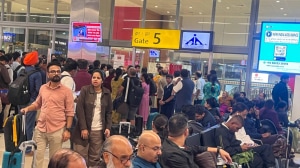Counterfeit NCERT Class 12 books worth Rs 2.4 crore seized, 3 held
The shopowners were arrested, and during their questioning, it came to light that while Prashant had been running the shop for the last 25 years, Nishant had joined the business five years ago
 The books, inspected on the spot by NCERT officials, were found to be unauthorised reproductions bearing forged signatures, falsely indicating legitimacy, said police (Representative image)
The books, inspected on the spot by NCERT officials, were found to be unauthorised reproductions bearing forged signatures, falsely indicating legitimacy, said police (Representative image)In a major crackdown, the Shahdara district police seized counterfeit NCERT (National Council of Educational Research and Training) textbooks worth Rs 2.4 crore from the M S Park area, said police. Three persons have been arrested in this connection.
Following a tip-off, a joint team led by the police and NCERT officials arrived at Mandoli Road Friday before proceeding to a shop owned by Prashant Gupta (48) and his son Nishant Gupta (26), police said. They were present at the shop along with five or six labourers aiding in the illegal activity, police added.
During the raid, 27 counterfeit NCERT Social Science textbooks for Class 12 were recovered. The books, inspected on the spot by NCERT officials, were found to be unauthorised reproductions bearing forged signatures, falsely indicating legitimacy, said police.
“The materials had been altered to closely mimic original NCERT books, including fraudulent price tags and identification codes,” said a police officer.
The shopowners were arrested, and during their questioning, it came to light that while Prashant had been running the shop for the last 25 years, Nishant had joined the business five years ago.
“Driven by greed for quick profits, they had started dealing in pirated books. They admitted that they used to purchase counterfeit books from a store in Hiranki near Alipur, and then bring them to their shop from where the books were sold,” said DCP (Shahdara) Prashant Gautam.
A raid at the store in Hiranki yielded 1.6 lakh pirated NCERT books, estimated to be worth around Rs 2.4 crore, said police. “These books were confirmed to be counterfeit by the NCERT team and were subsequently seized. The shop’s owner, Arvind Kumar, was arrested,” an officer said.
The police said they are looking at the supply chain – from printing presses to end distributors – and exploring potential systemic issues within NCERT itself, such as delayed availability and limited supply of original textbooks. “These shortcomings may have inadvertently driven the demand for pirated materials,” the officer said.
“The probe also seeks to uncover the involvement of wholesalers, local vendors, and possibly even educational institutions that may be complicit in this illegal trade,” the officer added.







